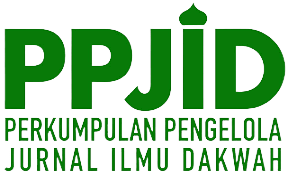Impact of Eloping on Household Life in the Community of Pota Village Sambi Rampas District, Manggarai Timur Regency
DOI:
https://doi.org/10.18196/jicc.v1i2.23Keywords:
impact, elopement (wa'a rai), householdAbstract
This research focuses on two problem formulations concerning the practice of wa'a rai (elopement) carried out by the people of the Pota village and the factors that cause elopement, and the impact of elopement on domestic life. The research used descriptive and qualitative methods through field research. To facilitate the collection of data, facts, and information, the researcher will reveal and explain the problems in this study about how the impact of elopement on the household life of elopement actors after marriage in the Pota village community. Based on the analysis, it can be concluded that the practice of elopement in the Pota village community is allowed if it does not conflict with applicable law (Islamic Law and Law No. 4 of 1974). The elopement in the Pota village community is caused by internal and external factors. Internal factors include the absence of parental consent, mutual liking, and women having conceived out of wedlock. In contrast, external factors include Belis (dowry) and religious differences. The impacts of elopement in domestic life include economic or financial problems, triggering domestic violence, conflicts between daughter or son-in-law and parents-in-law, infidelity, and great opportunities for divorce.
References
Abror, K. (2017). Hukum Perkawinan Dan Perceraian. Bening Pustaka.
Adji, S. U. (1989). Kawin Lari dan Kawin Antar Agama. Lyberty.
Afandi, A. (2000). Hukum Waris Hukum Keluarga Hukum Pembuktian. PT Rineka Cipta.
Al-Khauli, M. S. (2016). Fikih wanita. Pustaka iman Asy-Syafi’i.
Atmadja, D. I. (2016). Hukum Perdata. Setara Press.
Aulia, R. (2021). Akibat Hukum Kawin Lari Berdasarkan Undang-Undang Perkawinan Di Indonesia. [Diploma Thesis, Universitas Islam Kalimantan]. Repository Universitas Islam Kalimantan. http://eprints.uniska-bjm.ac.id/id/eprint/7663.
Basri, R. (2001). Fiqh Munakahat 4 Mazhab dan Kebijakan Pemerintah. CV. Kaaffah Learning Center, Cetakan I.
Fathoni, A. (2006). Metodologi Penelitian dan Teknik Penyusunan Skripsi. PT. Rineka Cipta.
Imbawani, D. A. (2016). Hukum Perdata. Setara Press.
Jamaluddin., & Amalia, N. (2016). Hukum Perkawinan. Unimal Press, Cetakan Pertama.
Khairunnisa. (2017). Dampak Praktik Kawin Lari terhadap Kehidupan Keluarga pada Masyarakat Kec. Kutapanjang Kab. Gayo Lues. [Skripsi Sarjana, UIN Ar-Raniry Banda Aceh]. https://repository.ar-raniry.ac.id/id/eprint/1992/.
Moleong, L. J. (2002). Metodologi Penelitian Kualitatif. PT Remaja Rosdakarya.
Sahrani, S. (2013). Fikih Munakahat Kajian Fikih Nikah Lengkap. PT Raja Grafindo Persada, Rajawali Pers, Cet. Ke-3.
Muthiah, A. (2017). Dinamika Perkembangan Seputar Hukum Perkawinan dan Hukum Kewarisan. Pustaka Baru Press.
Riduan, A. (2017). Tradisi Sebambangan pada Masyarakat Adat Lampung Pepadun Perspektif Islam (Studi di Kelurahan Terbanggi Besar Kecamatan Terbanggi Besar Kabupaten Lampung Tengah). [Skripsi Sarjana, UIN Raden Intan Lampung]. http://repository.radenintan.ac.id/1220/.
Soekanto, S. (2005). Hukum Adat Indonesia. Raja Grafindo Persada.
Sugiyono. (2017). Metode Penelitian Kualitatif (Edisi-Ketiga). Alfabeta.
Summa, M. A. (2005). Hukum Keluarga Islam di Dunia Islam. PT. Raja Grafindo Persada.
Tihami., & Sahrani, S. (2009). Fiqh Munakahat: Kajian Fiqh Nikah Lengkap. Rajawali Pers.
Trianto., & Tutik, T. T. (2007). Perkawinan Adat Wulugiri suku tengger. Prestasi Pustaka Publisher.
Usman, S. A. (1989). Kawin Lari dan Kawin Antar Agama. Lyberty.
Witanto. (2012). Hukum Keluarga Hak dan Kedudukan Anak Luar kawin. Pustaka karya.
Yayasan Penyelenggara Penterjemah Al-Qur’an kementerian Agama RI. (2010). Al-Qur’an dan Terjemahnya, Tehazed.
Additional Files
Published
How to Cite
License
Journal of Islamic Communication and Counseling is currently licensed under a Creative Commons Attribution-ShareAlike 4.0 International (CC BY-SA 4.0)





